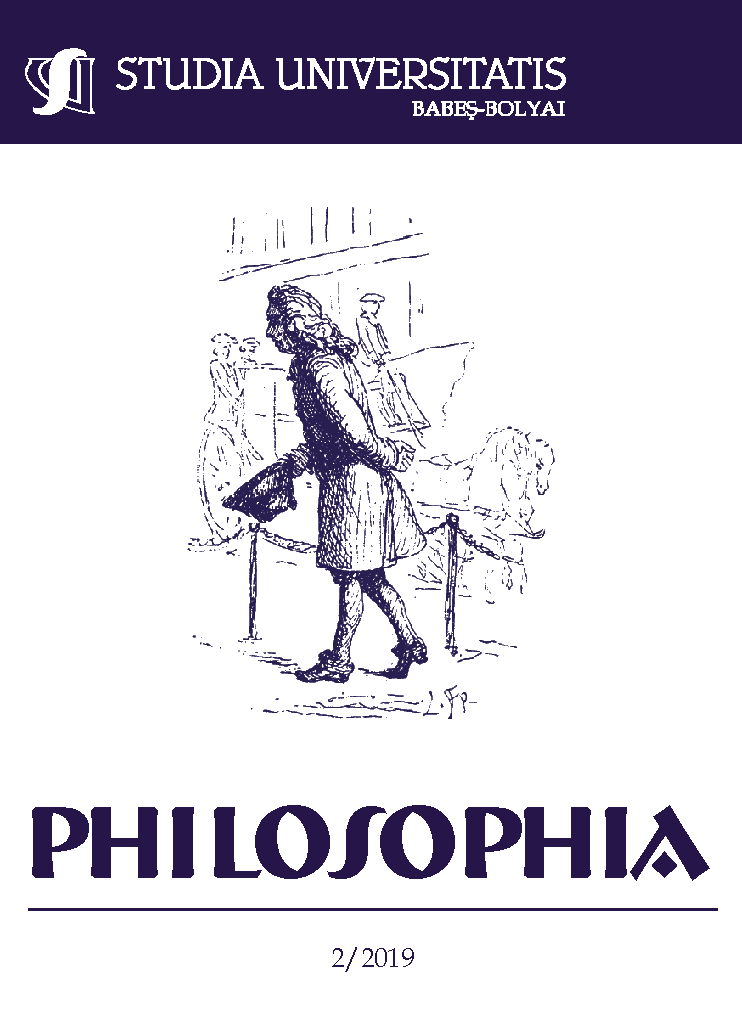EMBODIED LEARNING OF LANGUAGE IN PRESCHOOLERS: EMOTION, ENACTMENT, AND COGNITION
DOI:
https://doi.org/10.24193/subbphil.2019.2.04Keywords:
language learning, embodied cognition, sensorimotor, emotionsAbstract
Language learning in preschool children tends to be likened to school-like learning, using verbal explanations more than actions when new words are learned during storytelling. Based on previous results that showed that sensorimotor elements help language learning at this age this study aimed to investigate whether positive emotions also act like essential elements for language learning. Fifty-five 4 to 5 year olds listened to a modified version of the Town Musicians of Bremen story. There were four conditions: one that included emotions and sensorimotor elements during storytelling, one that had only emotions, one that had only sensorimotor elements, and one that had neither emotions nor sensorimotor elements. Results show no advantage of positive emotions by themselves, and a clear advantage of sensorimotor elements. Implications are discussed with regard to inducing emotions versus naturally arising emotional states, and also to the embodied learning perspective.
References
Barsalou, L. (2003). Situated simulation in the human conceptual system. Language and cognitive processes, 18(5-6), 513-562.
Barsalou, L. W. (2008). Grounded cognition. Annual Review of Psychology, 59, 617-645.
Barsalou, L. W. (2010). Grounded cognition: Past, present, and future. Topics in cognitive science, 2(4), 716-724.
Calvo, P., & Gomila, T. (2008). Handbook of cognitive science: An embodied approach, San Diego: Elsevier.
Fredrickson, B. L. (1998). Cultivated emotions: Parental socialization of positive emotions and self-conscious emotions. Psychological Inquiry, 9(4), 279-281.
Fredrickson, B. L. (2001). The role of positive emotions in positive psychology: The broaden-and-build theory of positive emotions. American Psychologist, 56(3), 218.
Fredrickson, B. L. (2013). Positive emotions broaden and build. In Advances in experimental social psychology (Vol. 47, pp. 1-53). Academic Press.
Fredrickson, B. L., & Branigan, C. (2005). Positive emotions broaden the scope of attention and thought‐action repertoires. Cognition &emotion, 19(3), 313-332.
Fredrickson, B. L., &Joiner, T. (2002). Positive emotions trigger upward spirals toward emotional well-being. Psychological science, 13(2), 172-175.
Gallese, V., & Lakoff, G. (2005). The brain's concepts: The role of the sensory-motor system in conceptual knowledge. Cognitive neuropsychology, 22(3-4), 455-479.
Glenberg, A. M., Sato, M., Cattaneo, L., Riggio, L., Palumbo, D., &Buccino, G. (2008). Processing abstract language modulates motor system activity. The Quarterly Journal of Experimental Psychology, 61(6), 905-919.
Ionescu, T. (2011). Abordarea "embodied cognition" şi studiul dezvoltării cognitive. Revista de Psihologie, 57, 326-339.
Ionescu, T., & Glava, A. (2015). Embodied learning: Connecting psychology, education, and
the world (Opinion article). Studia UBB Psychol.-Paed., LX, 2, 5-17.
Ionescu, T., & Ilie, A. (2018). Language learning in preschool children: an embodied learning account. Early Child Development and Care, 188(1), 4-15.
Isen, A. M., Daubman, K. A., &Nowicki, G. P. (1987). Positive affect facilitates creative problem solving. Journal of personality and social psychology, 52(6), 1122.
Isen, A. M., Johnson, M. M., Mertz, E., & Robinson, G. F. (1985). The influence of positive affect on the unusualness of word associations. Journal of personality and social psychology, 48(6), 1413.
Landy, D. & Goldstone, R. L. (2007). How abstract is symbolic thought? Journal of Experimental Psychology: Learning, Memory, & Cognition, 33, 720-733.
Kiefer, M., & Trumpp, N. M. (2012). Embodiment theory and education: The foundations of cognition in perception and action. Trends in Neuroscience and Education, 1(1), 15-20.
Kucker, S. C., McMurray, B., & Samuelson, L. K. (2015). Slowing down fast mapping: Redefining the dynamics of word learning. Child Development Perspectives, 9(2), 74-78.
Laakso, A. (2011). Embodiment and development in cognitive science. Cognitie, Creier, Comportament / Cognition, Brain, Behavior, 15(4).
Morse, A. F., Benitez, V. L., Belpaeme, T., Cangelosi, A., & Smith, L. B. (2015). Posture affects how robots and infants map words to objects. PloS one, 10(3), e0116012.
Pereira, A. F., Smith, L. B., & Yu, C. (2014). A bottom-up view of toddler word learning. Psychonomic bulletin &review, 21(1), 178-185.
Rueda, M. R., Fan, J., McCandliss, B. D., Halparin, J. D., Gruber, D. B., Lercari, L. P., & Posner, M. I. (2004). Development of attentional networks in childhood. Neuropsychologia, 42(8), 1029-1040.
Schaffer, H. R. (2004). Introducing child psychology. Blackwell Publishing.
Smith, L. B., & Sheya, A. (2010). Is cognition enough to explain cognitive development? Topics in Cognitive Science, 1-11.
Smith, L. B., Yu, C., & Pereira, A. F. (2011). Not your mother’s view: The dynamics of toddler visual experience. Developmental science, 14(1), 9-17.
Stolz, S. A. (2015). Embodied learning. Educational Philosophy and Theory, 47(5), 474-487.
Thelen, E., & Smith, L. B. (1998). Dynamic systems theories.
Wellsby, M., & Pexman, P. (2019). Learning Labels for Objects: Does Degree of Sensorimotor Experience Matter?. Languages, 4(1), 3.
Wilson, M. (2002). Six views of embodied cognition. Psychonomic bulletin &review, 9(4), 625-636.
Zwaan, R. A., Stanfield, R. A., & Yaxley, R. H. (2002). Language comprehenders mentally represent the shapes of objects. Psychological science, 13(2), 168-171.
Downloads
Published
How to Cite
Issue
Section
License
Copyright (c) 2019 Studia Universitatis Babeș-Bolyai Philosophia

This work is licensed under a Creative Commons Attribution-NonCommercial-NoDerivatives 4.0 International License.





